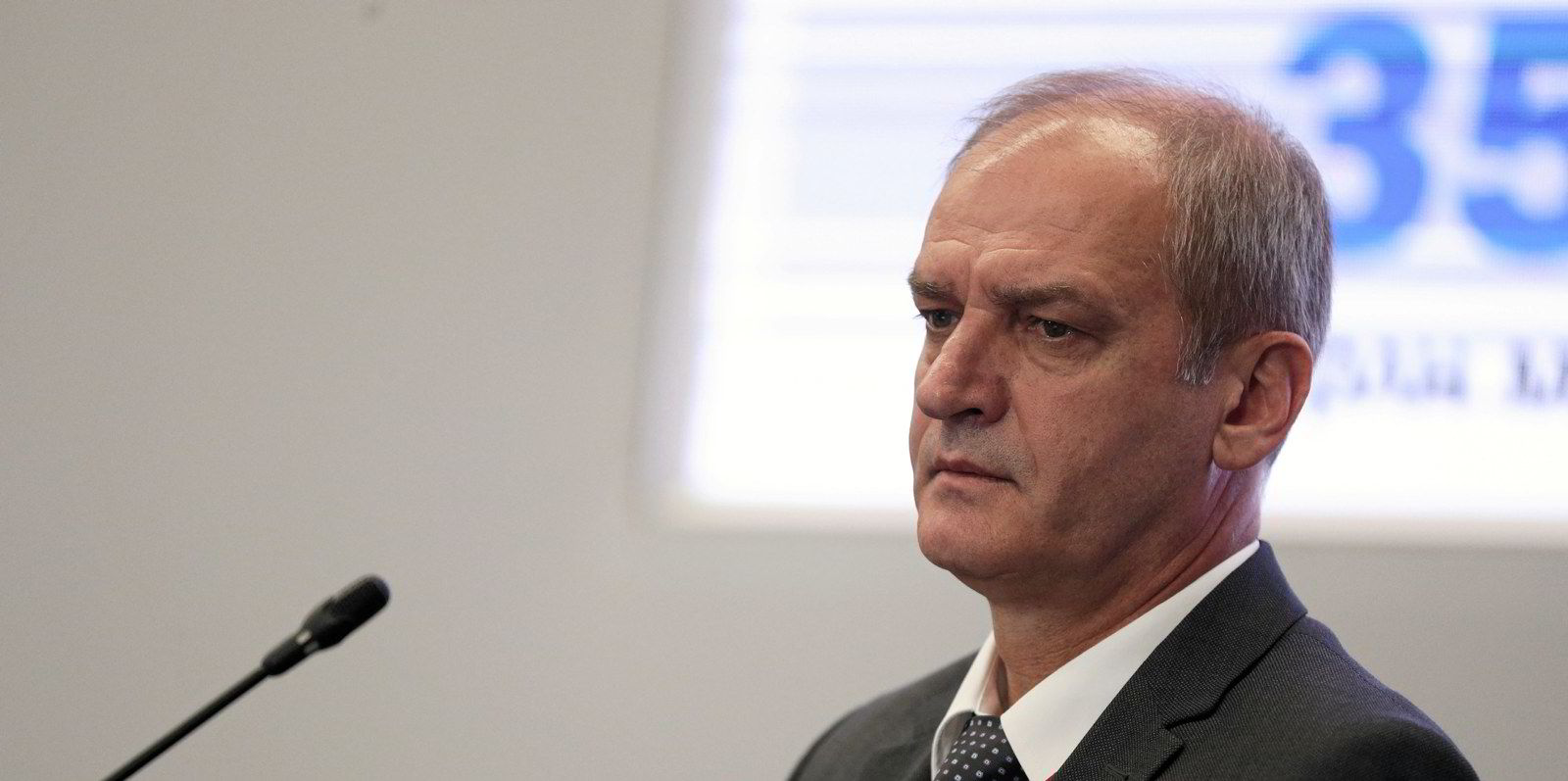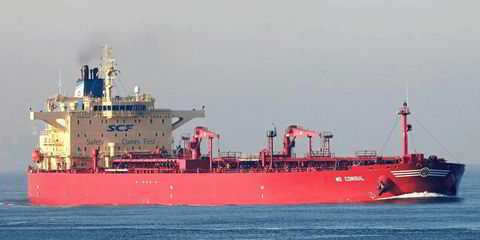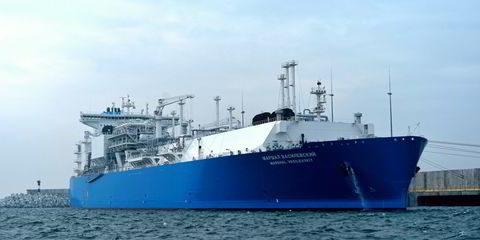The chief executive of sanctioned shipowner Sovcomflot says Russia has to build up its fleet and provide better services to keep control of its energy exports, according to local reports.
Igor Tonkovidov said Russian-owned vessels shipped just 15% of oil, products and gas from the country’s ports in 2022, the PortNews website reported.
The figure represented a “low level of control over maritime export logistics in Russia” and highlighted the need to build up the country’s tanker fleet, the site reported him as saying.
The improved measures needed were said to include developing insurance institutions for shipping, favouring domestic shipowners and developing financing in multiple currencies.
Tonkovidov was reportedly speaking at the National Oil & Gas Forum in Moscow this week. The SCF Group has been approached for comment.
Western companies can provide shipping and insurance services only if Russian oil is sold below a series of price caps introduced in December last year and February. That has allowed a gap in the market that has been partly filled by new owners of vintage tankers that were purchased solely for use in the Russian market.
Many mainstream Western tanker companies have avoided the Russian market entirely, while those that are part of the grey fleet face additional compliance burdens. But the fleet that has hauled Russian oil has enjoyed a significant premium from calculated rates if a sanctions regime had not been in place, according to analysis by Argus Media.
The elevated freight rates are caused by a tanker shortage for hauling Russian oil, but deputy energy minister Pavel Sorokin said this week that the rates would return to normal within a year or so, Reuters reported.
The scale of the trade reshuffle of Russian oil was highlighted by deputy prime minister Alexander Novak, who said 20% of volumes previously supplied to Europe went east in 2022, but that figure would significantly increase in 2023, Interfax reported on Thursday.
Russian oil exports in March reached their highest level for three years. Total shipments rose to 8.1m barrels per day, the International Energy Agency reported.
But officials said revenues are still 43% lower than a year ago. The G7 claims that the price cap scheme has been successful in keeping Russian oil flowing while limiting Moscow’s revenues.
The invasion of Ukraine and subsequent sanctions have led to a fundamental shift in trading patterns, with Russia’s biggest customer, the European Union, being replaced by China and India.
Those two countries now account for close to 75% of Russia’s crude oil exports, said analysts at the Kyiv School of Economics.





